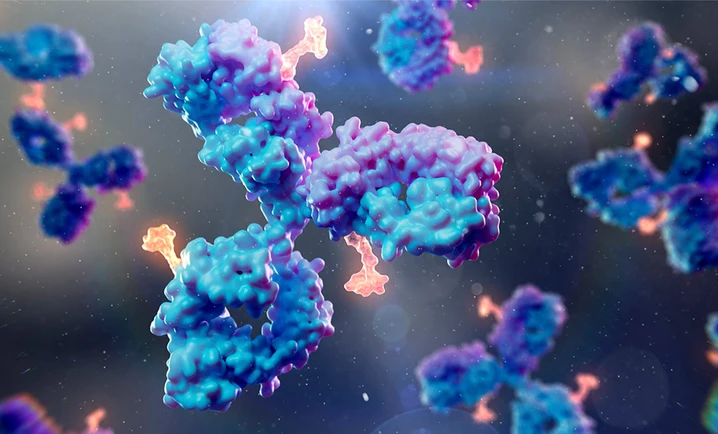Antibody-drug conjugates (ADCs) represent one of the most promising advancements in targeted cancer therapy. By combining the specificity of monoclonal antibodies with the potent cell-killing ability of cytotoxic drugs, ADCs can deliver treatment directly to cancer cells, minimizing damage to healthy tissue. However, the development and approval of ADCs present significant regulatory challenges, given the complexity of these biologic-drug combinations. Navigating the regulatory landscape requires a deep understanding of the unique requirements for both biologics and drugs, as well as the nuances of clinical trial design and execution.
This is where a trusted partner like CERES FDA regulatory consultant becomes invaluable. CERES provides expert guidance in regulatory strategy, helping companies streamline the approval process and navigate the intricacies of developing ADCs.
What Are Antibody-Drug Conjugates (ADCs)?
Antibody-drug conjugates are engineered therapies that link a monoclonal antibody to a highly potent cytotoxic drug through a stable chemical linker. The antibody selectively targets specific antigens found on the surface of cancer cells, delivering the cytotoxic drug directly to the tumor. Once inside the cell, the drug is released, leading to the targeted destruction of cancerous tissue.
Because ADCs involve both a biologic (the antibody) and a small-molecule drug (the cytotoxic agent), their regulatory approval involves stringent guidelines to ensure both components are safe, effective, and work synergistically as intended. Regulatory authorities, particularly the U.S. Food and Drug Administration (FDA), require comprehensive data to demonstrate that ADCs meet the necessary safety and efficacy standards.
Regulatory Challenges for Antibody-Drug Conjugates
The regulatory approval process for ADCs is more complex than for traditional small-molecule drugs or biologics alone due to the combination of different components. ADCs fall under the FDA’s combination product category, meaning they must comply with regulations governing both biologics and drugs. This requires careful planning and precise regulatory strategy, which CERES FDA regulatory consultants help companies develop and implement.
Key regulatory challenges for ADCs include:
- Ensuring Stability and Safety of the Conjugation Process: ADCs rely on the stable attachment of the drug to the antibody via a chemical linker. Regulatory agencies require data demonstrating that the conjugation process consistently produces a stable and safe product.
- Pharmacokinetics and Biodistribution: The FDA requires pharmacokinetic studies to understand how the ADC behaves in the body, including how the antibody targets cancer cells, how the drug is released, and how it is metabolized. These studies help demonstrate the efficacy and safety of the product.
- Preclinical Toxicity: ADCs are highly potent therapies, and ensuring that they selectively target cancer cells without harming healthy tissue is critical. The FDA requires robust preclinical studies to assess the potential for off-target effects or toxicity related to the cytotoxic drug component.
- Good Manufacturing Practices (GMP): ADCs are complex products that require strict adherence to GMP standards in both biologics and drug manufacturing. Ensuring that both the antibody and cytotoxic drug are manufactured consistently and meet quality standards is a regulatory requirement.
Key Steps in the Regulatory Approval Process for ADCs
- Pre-IND Meeting with the FDA
Before initiating clinical trials, companies are encouraged to request a pre-Investigational New Drug (IND) meeting with the FDA. This meeting allows for early feedback on the proposed development plan and can identify potential issues before the formal IND submission.
CERES FDA regulatory consultants help companies prepare for these meetings by developing a comprehensive regulatory strategy that addresses the key questions the FDA may raise. By engaging the FDA early, companies can receive guidance that shapes their development process and mitigates potential delays.
- Investigational New Drug (IND) Application
The IND application is a crucial step in the approval process for ADCs. This submission contains data from preclinical studies, proposed clinical trial designs, and manufacturing information. It serves as the FDA’s basis for allowing human clinical trials to begin.
CERES FDA regulatory consultants assist companies in preparing IND submissions, ensuring that all necessary data is included and that the documentation meets FDA requirements. Their expertise can help companies avoid common pitfalls, such as incomplete data or poorly designed trial protocols, which can result in delays.
- Clinical Trial Phases (I-III)
ADCs must undergo rigorous clinical trials to demonstrate their safety and efficacy. These trials are conducted in three phases:
- Phase I: Focuses on assessing the safety, dosage, and pharmacokinetics of the ADC in a small group of patients.
- Phase II: Evaluates the efficacy of the ADC in a larger group of patients, while continuing to monitor safety.
- Phase III: Confirms the efficacy of the ADC in a larger population and compares it to existing standard treatments.
CERES FDA regulatory consultants provide expert guidance throughout the clinical trial process, helping companies design trials that meet FDA standards while effectively assessing the safety and efficacy of their ADC.
- Biologics License Application (BLA) or New Drug Application (NDA)
Once clinical trials are successfully completed, companies must submit either a Biologics License Application (BLA) or a New Drug Application (NDA) to the FDA. This application contains all the data from preclinical and clinical studies, as well as detailed information about the manufacturing process.
CERES FDA regulatory consultants play a critical role in preparing these submissions. By ensuring that all required information is included and that the submission is complete and organized, CERES helps companies avoid unnecessary delays during the FDA’s review process.
Conclusion
The regulatory approval process for antibody-drug conjugates is complex, involving the need to comply with both biologic and drug regulations. To navigate these challenges and ensure a successful path to market, partnering with a knowledgeable expert like CERES FDA regulatory consultants is essential. Their expertise in regulatory strategy, clinical trial design, and compliance helps companies accelerate the development of ADCs, bringing life-saving therapies to patients faster and more efficiently.
By working with CERES, companies can confidently navigate the intricacies of ADC development, ensuring that their products meet FDA standards and achieve regulatory approval in a timely manner.




